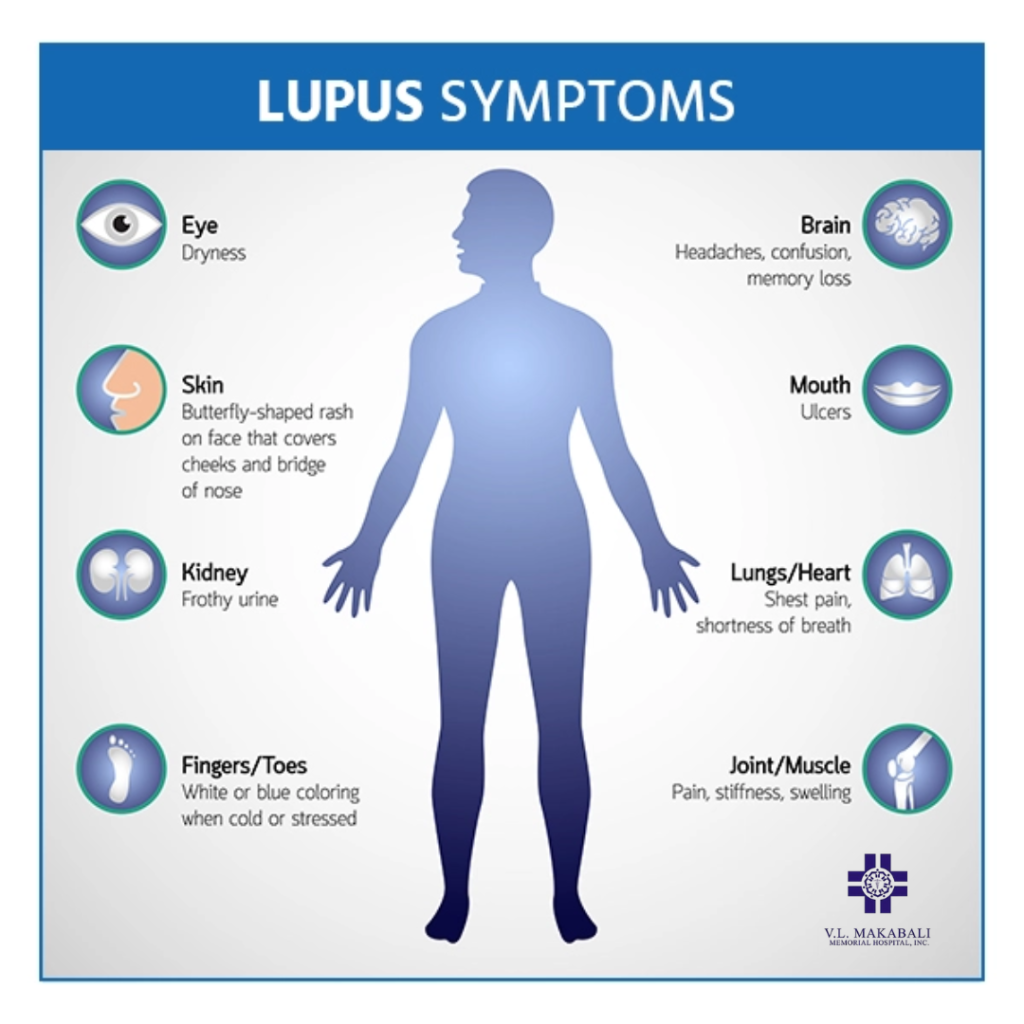Lupus is a chronic autoimmune disease that occurs when the body’s immune system mistakenly attacks healthy cells and tissues. It can affect nearly any part of the body, including the skin, joints, kidneys, heart, and lungs, leading to a wide range of symptoms that vary from person to person.
Why Lupus Awareness Matters:
- Delayed Diagnosis: Lupus is often difficult to diagnose because its symptoms are similar to other diseases and can come and go. It can take years for many people to receive a proper diagnosis.
- Impact on Life: Lupus affects millions worldwide, and it is most commonly diagnosed in women between the ages of 15 and 44. The disease can have a significant impact on quality of life, with flare-ups causing fatigue, pain, and organ damage if not managed properly.
Key Symptoms of Lupus:
- Fatigue – One of the most common and debilitating symptoms.
- Joint Pain and Swelling – Often in the hands, wrists, and knees.
- Butterfly Rash – A red rash across the cheeks and nose.
- Sensitivity to Sunlight – Rashes or flare-ups after sun exposure.
- Hair Loss – Thinning or shedding hair.
- Chest Pain or Shortness of Breath – Can indicate heart or lung involvement.
- Mouth Sores – Pain-free ulcers inside the mouth or nose.
- Swollen Lymph Nodes – Inflammation of the lymph nodes.
Causes and Risk Factors:
- Exact cause unknown but may involve a combination of genetic and environmental factors.
- Genetics: Lupus tends to run in families, suggesting a genetic link.
- Environmental triggers: Exposure to sunlight, infections, and certain medications may trigger or worsen lupus symptoms.
- Gender and Age: Most commonly affects women of childbearing age (15-44 years).
Managing Lupus:
There is no cure for lupus, but early detection and appropriate treatment can help manage symptoms, reduce flare-ups, and prevent organ damage. Treatment often involves:
- Medications to control inflammation, suppress the immune system, and manage symptoms.
- Lifestyle changes such as regular exercise, a healthy diet, and stress management.
- Sun protection since UV rays can trigger flare-ups.
- Routine medical check-ups to monitor organ function and adjust treatment as needed.
How You Can Help Raise Lupus Awareness:
- Educate Yourself and Others – Understanding lupus can help you support those affected and promote early diagnosis.
- Wear Purple – Purple is the color for lupus awareness, so consider wearing purple during Lupus Awareness Month (May) or any time to show support.
- Share Stories and Resources – Social media and community events are great ways to raise awareness. Share facts, personal stories, and resources to support the lupus community.
- Support Research – Donating to organizations like the Lupus Foundation of America helps fund research for a cure and better treatments.
Lupus affects people of all ages, but with awareness, early diagnosis, and proper management, those living with lupus can lead fulfilling lives. If you or someone you know is showing symptoms of lupus, encourage them to seek medical advice.




